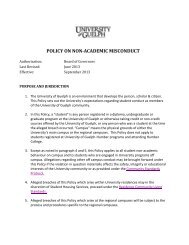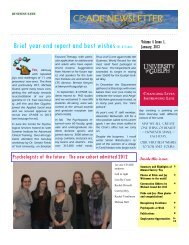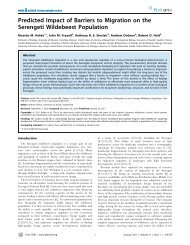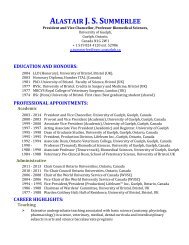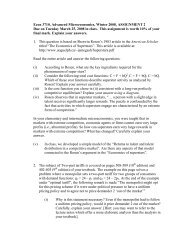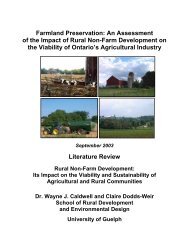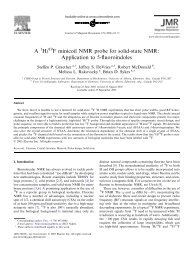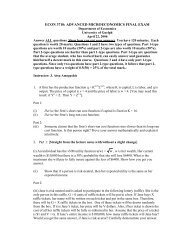(Giving) Savings Accounts? - University of Guelph
(Giving) Savings Accounts? - University of Guelph
(Giving) Savings Accounts? - University of Guelph
You also want an ePaper? Increase the reach of your titles
YUMPU automatically turns print PDFs into web optimized ePapers that Google loves.
(<strong>Giving</strong>) <strong>Savings</strong> <strong>Accounts</strong>? 67to use a lovely phrase <strong>of</strong> Judith Butler’s, ‘in a certain wild future<strong>of</strong> [its] inheritance’ (Butler, 2005, p. 32). That the man whoespouses ‘the good man saves judiciously and spends well’ mighthimself, in the act <strong>of</strong> espousing, spend very badly, taking hissweet time to tell us about giving. That tome upon tome claimingthat justice is primarily a matter <strong>of</strong> distribution belie howjustice is as much matter <strong>of</strong> the sheer weight <strong>of</strong> words, <strong>of</strong> forcepinning a possible asset or resource or tale, in one place. Thatall this talk about the problem <strong>of</strong> scarcity really means the problemis overproduction. And that the widely circulating dictum:‘it is right and good to save for future generations’ is an insidiousmode by which lavish spending happens now and saving isever postponed. Justice discourse, like the discourse <strong>of</strong> pleasure,is a proliferative and spending modality. Bataille suspected thatwe create in order to expend, and that if we retain things wehave produced it is only to allow ourselves to continue living,and thus destroying. What Foucault, Deleuze and Guattari addto Bataille’s inverted insight are the many ways that signifyingpractices constitute the conditions for creation, continuity anddestruction <strong>of</strong> everyday truths.Cleaning House?In this chapter, I originally set out to write about the novelHousekeeping and why it was a contestation <strong>of</strong>, or at least animpressive struggle with, those plain everyday truths about savingsand spendings, especially about the roles <strong>of</strong> men and womenin salvation pumps, worldly and other-worldly. Housekeepingseemed an exemplar <strong>of</strong> the aneconomic, or perhaps even thegeneral or ‘feminine economy’. I thought the main character,Sylvie, was perhaps a new figure for ‘the nomad’, albeit a feminineone, a female Bartleby with a kid to prefer not to mind. Iwanted to give that lesson. I read Housekeeping as an allegory fora certain set <strong>of</strong> expectations incumbent upon persons if they areto count as persons, and to not end in nothing, as the centralfigure, Sylvie, seems to. Those expectations are <strong>of</strong>fspring <strong>of</strong> theplain everyday truths I’ve been discussing here. The progressiveWHolland_Ch04_FPP.indd 672/5/2009 5:53:56 PM





